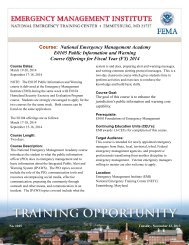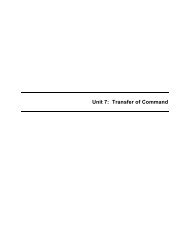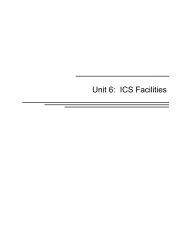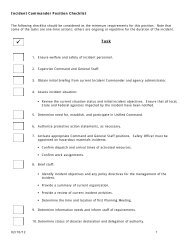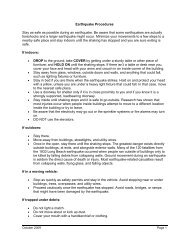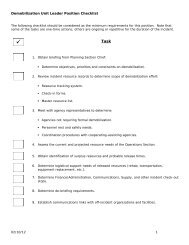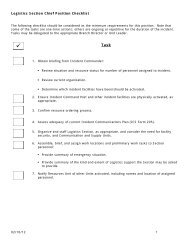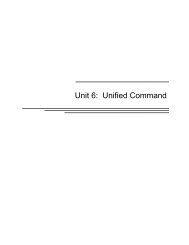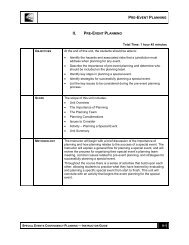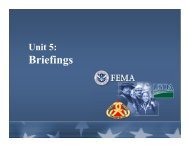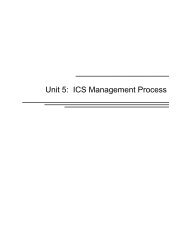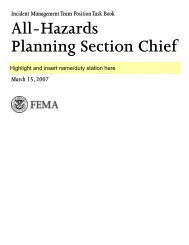Effective Communication - Emergency Management Institute ...
Effective Communication - Emergency Management Institute ...
Effective Communication - Emergency Management Institute ...
Create successful ePaper yourself
Turn your PDF publications into a flip-book with our unique Google optimized e-Paper software.
UNIT 8: COURSE SUMMARY<br />
Communicating in an <strong>Emergency</strong> (Continued)<br />
<strong>Communication</strong> media range in complexity from handwritten notices to<br />
international satellite broadcasts. Selecting the appropriate media for both the<br />
message and the audience is essential to effective communication.<br />
Community-Specific <strong>Communication</strong>s Issues<br />
Whether we realize it or not—and we often don’t—traditions shape the way we<br />
interact with other people. Cultural differences reflect internal beliefs and<br />
thought patterns that cause people to react differently to the same situation.<br />
Differences in age and sex, the presence of a disabling condition—and even<br />
the part of the country you live in—can affect how you communicate.<br />
It’s not realistic to become an expert on every culture that you may encounter.<br />
However, it is reasonable for you to learn about the populations who make up<br />
major parts of your community. Take the time to learn about:<br />
What groups are represented in your community.<br />
Where they are located.<br />
What their needs are.<br />
Making yourself aware of key cultural and other differences—both verbal and<br />
body language differences—that you will need to address during an emergency<br />
will help you learn what to expect of the groups and whether your message is<br />
being communicated.<br />
<strong>Effective</strong> <strong>Communication</strong> Page 8.3



